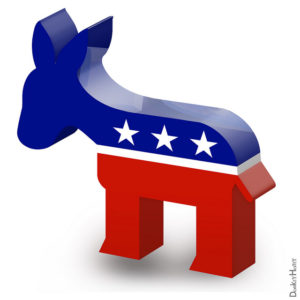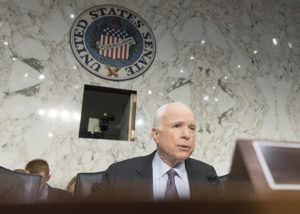
Orange-helping fembots
If you search Twitter for “John Kelly” (White House Chief of Staff) to find out the latest on rumors of his possible resignation, you may stumble upon tweet after tweet indicating “John Kelly Reveals Why He Didn’t Wear a US Flag Pin During Confirmation.” Here’s an example:
https://twitter.com/ellastrs/status/916311433704591360
Checking out some of these tweets, you will find that nearly every one was posted by an attractive-looking white woman, according to their profiles. Moreover, many such profiles were nearly identical, often indicating “Wife,” “Mom,” “Animal Lover,” “Patriot,” “Middle Class Trump Supporter,” etc. And even more creepy is that, besides the tweet about Kelly and the flag pin, many of these accounts have identical tweets down the line, in the same order, including “Lying Liberal Media is 92% Negative Against President Trump,” “RNC Chairwoman RIPS Michelle Obama’s Claim GOP is ‘ALL WHITE MEN,’” “BREAKING: Senate Intel Committee BLASTS Media for FAKE Russia News,” and the like. Furthermore, many of the posted stories come from “reportsecret.com.” When you search for that outlet, you get a 404 Error. Other links go to truthfeednews.com, which does exist, and it is some conservative publication. Their Kelly post didn’t criticize Kelly directly, but it did say this:
Ever since Barack Obama’s disastrous presidency, the American flag has been under an all-out assault.
NFL athletes routinely disrespect our flag, as do Hollywood celebrities, far-left denizens, and Democrat politicians.
In fact, many Democrat politicians make a point of choosing to not wear an American flag pin on their jackets, a subtle snub to our country and to those who are patriotic.
Here are a few more examples of the profiles found and some of the tweets in question:












